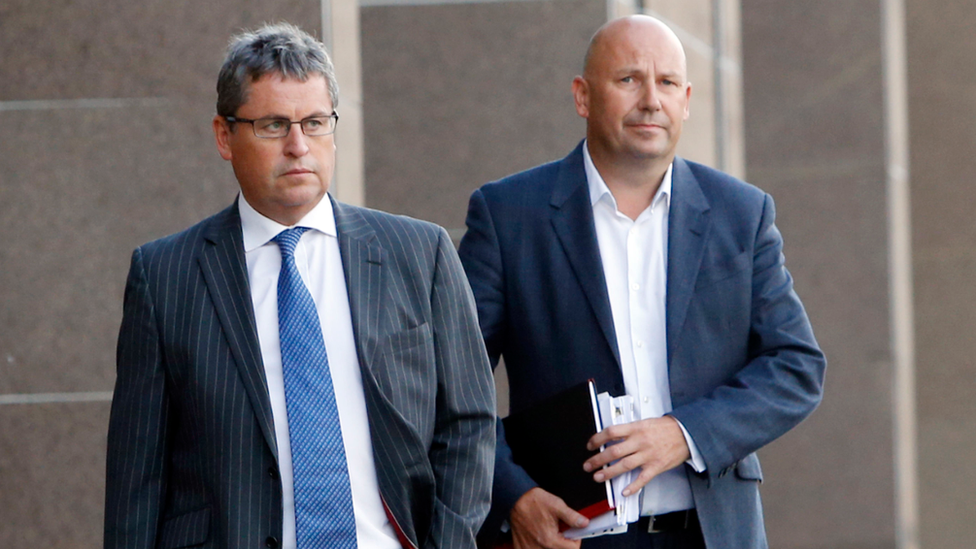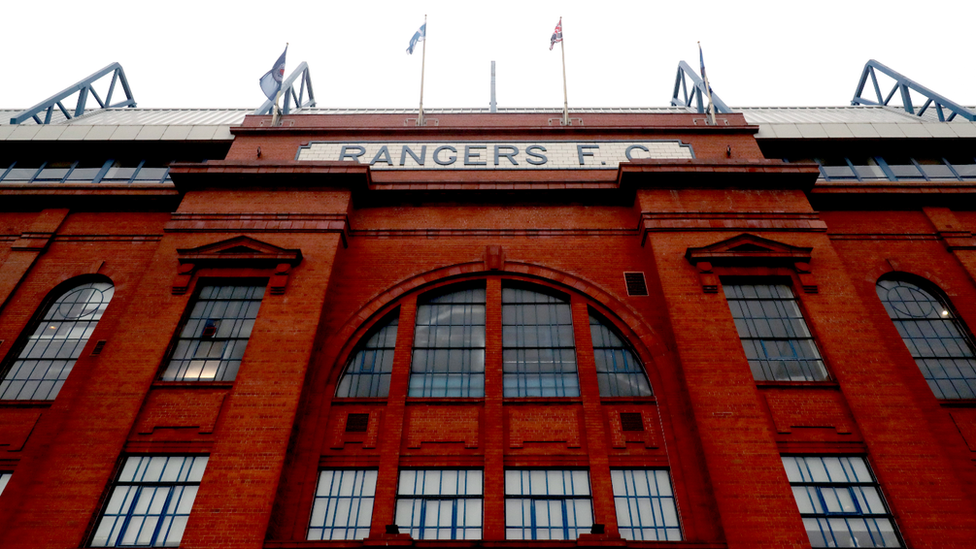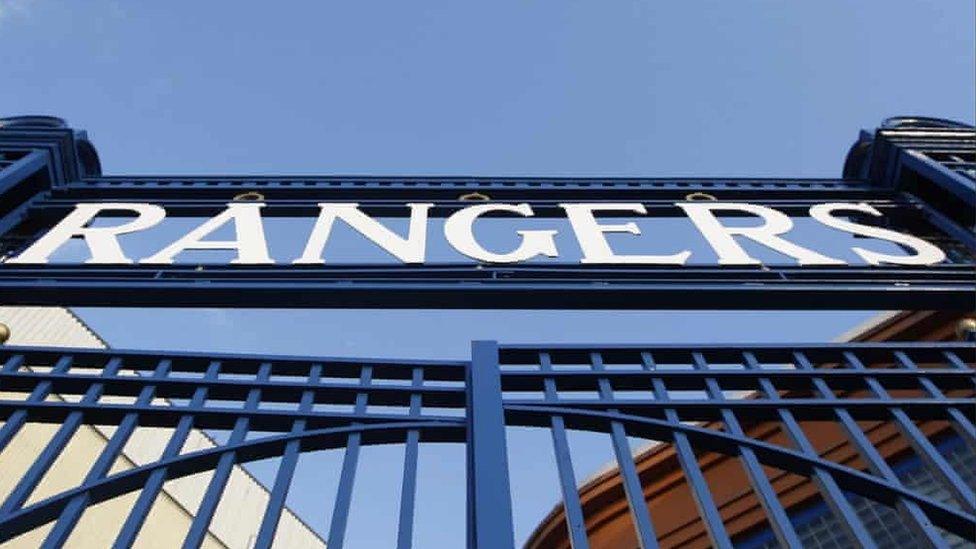Rangers FC administrators settle with Police Scotland
- Published

David Whitehouse (left) and Paul Clark (right)
Two men who were wrongfully arrested during a probe into fraud at Rangers have settled with police out of court.
David Whitehouse and Paul Clark were appointed administrators when the company which ran the Glasgow club went into administration in 2012.
The men launched a £20.8m claim for compensation over their arrests in an "unlawful" criminal investigation.
Lawyers acting for the pair told judge Lord Tyre on Wednesday that they are no longer suing the chief constable.
However, they are continuing to sue the Crown Office.
Previously, lawyers acting for the Crown admitted the men were the subject of a "malicious" prosecution.
During a virtual hearing at the Court of Session in Edinburgh, Police Scotland's advocate Alastair Duncan QC told Lord Tyre that his clients had come to a "mutually beneficial" resolution.
However, the court also heard that Mr Whitehouse and Mr Clark are due to enter into a mediation process with prosecutors over their respective actions.
The amount which the police are paying to settle the action was not disclosed in open court.

Mr Whitehouse and Mr Clark's actions stemmed from their alleged treatment by the police and prosecution authorities.
The pair were arrested following events surrounding the financial position at Rangers more than eight years ago.
The two men were appointed administrators in February 2012. The parent company that controlled the club was liquidated in October 2012 and both Mr Whitehouse and Mr Clark left their positions.
Police then arrested Mr Whitehouse and charged him with offences relating to businessman Craig Whyte's takeover of Rangers in 2011.
Both men later saw the charges against them dropped.
It is claimed in the current action that there was not any justification for their detention, committal or prosecution and that the Crown never had sufficient evidence for any of the charges it brought.
Mr Whitehouse and Mr Clark won a ruling from a specially-convened bench of five judges at the Court of Session last year that the Lord Advocate, Scotland's top prosecutor, did not have absolute immunity from a civil damages claim in such circumstances.
- Published27 August 2020
